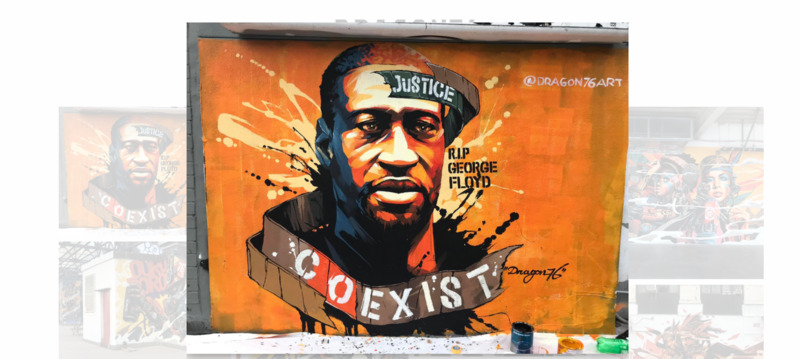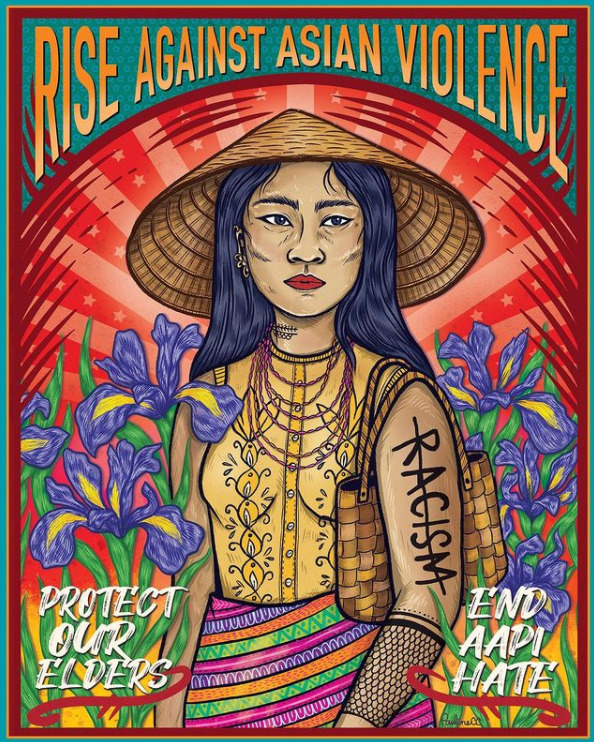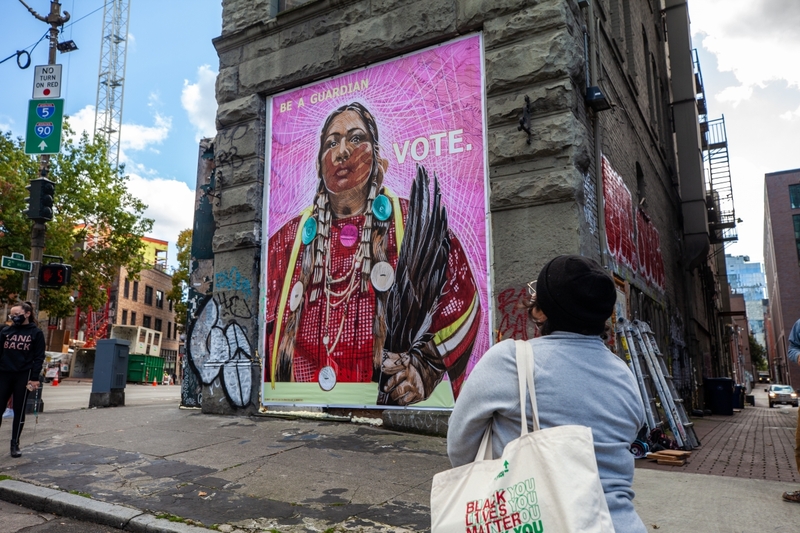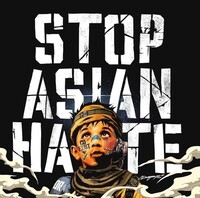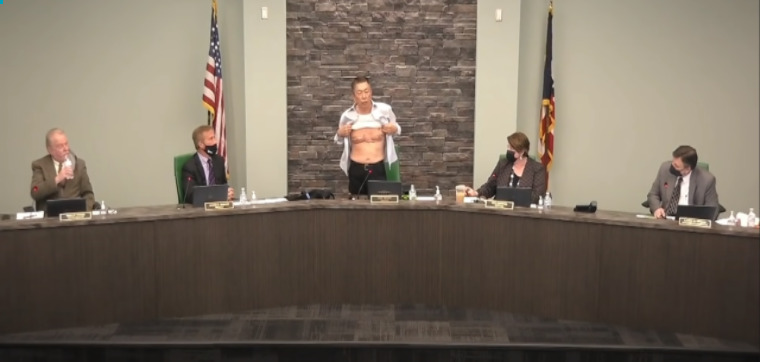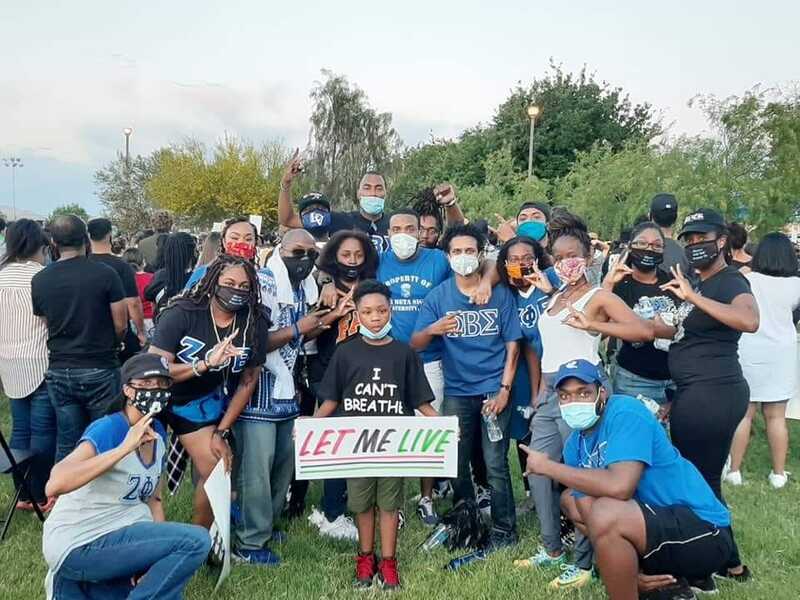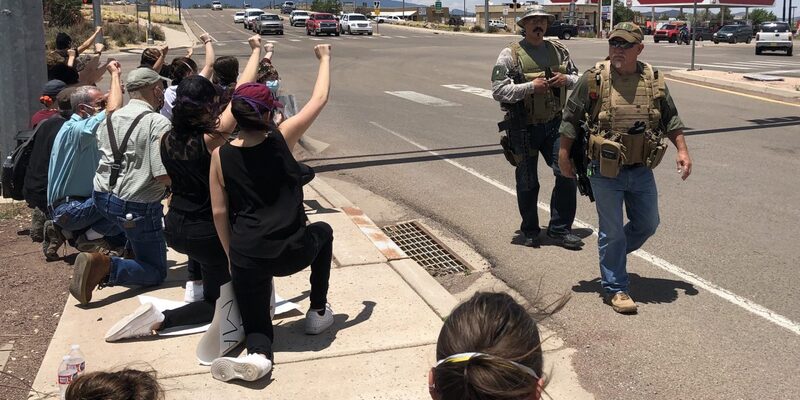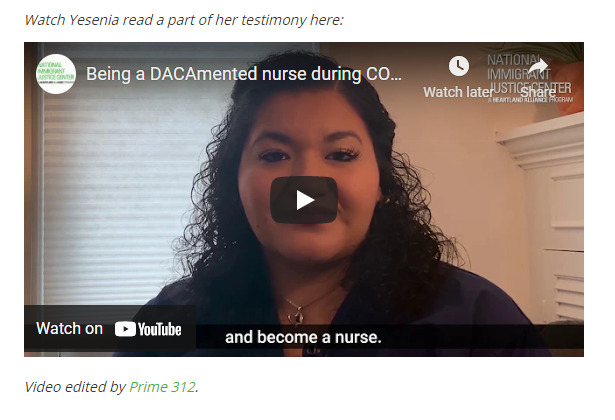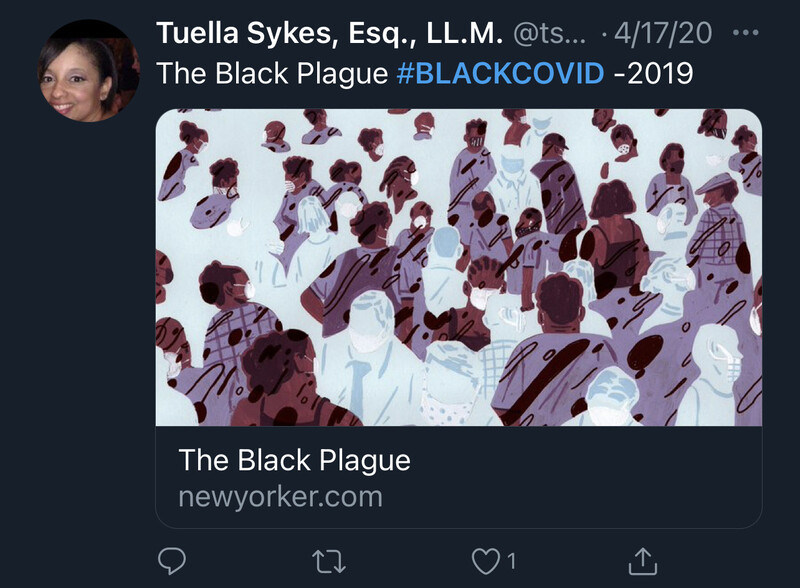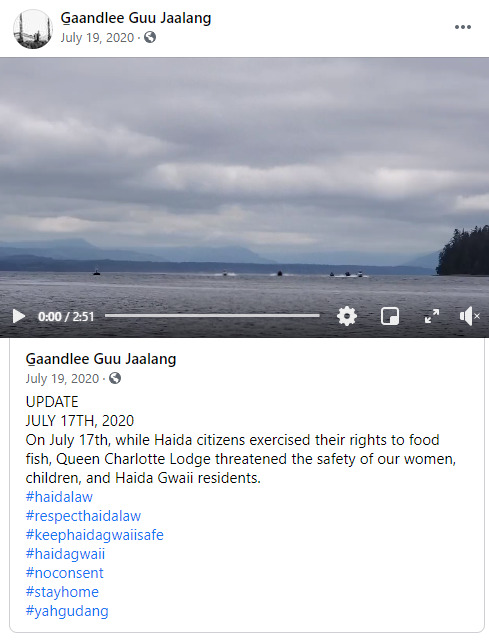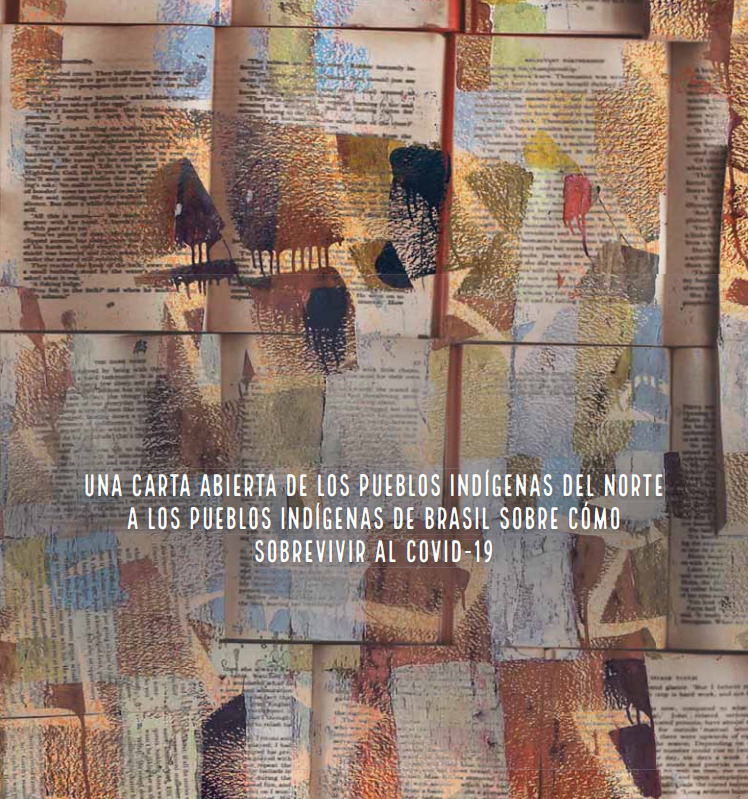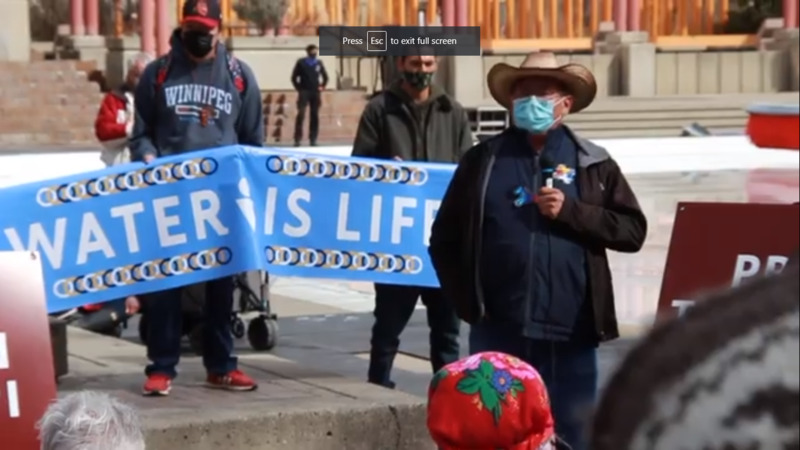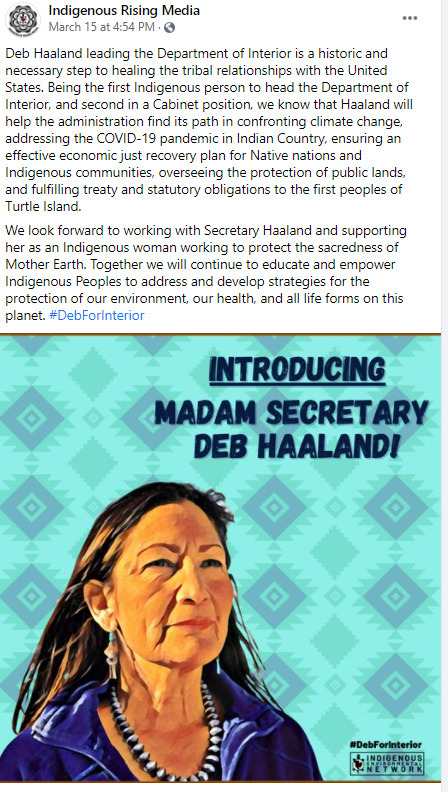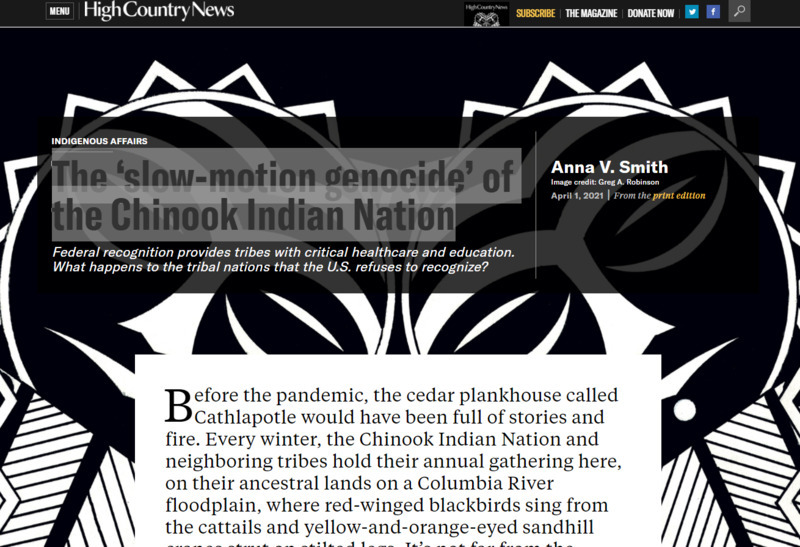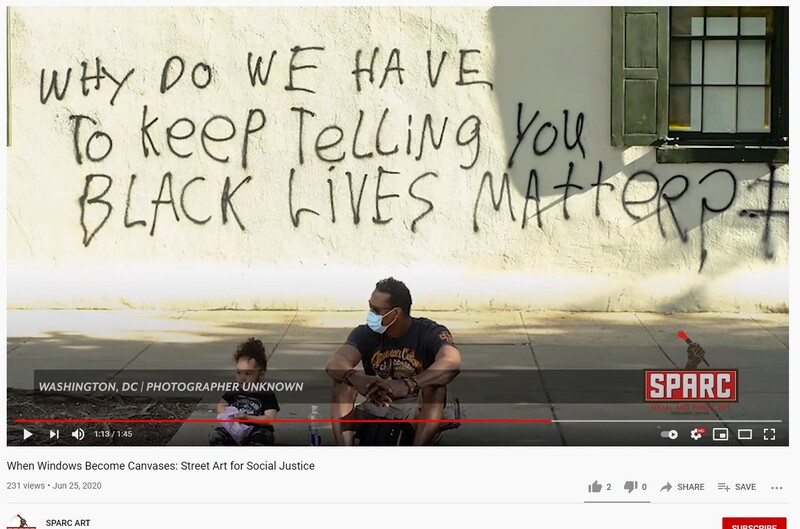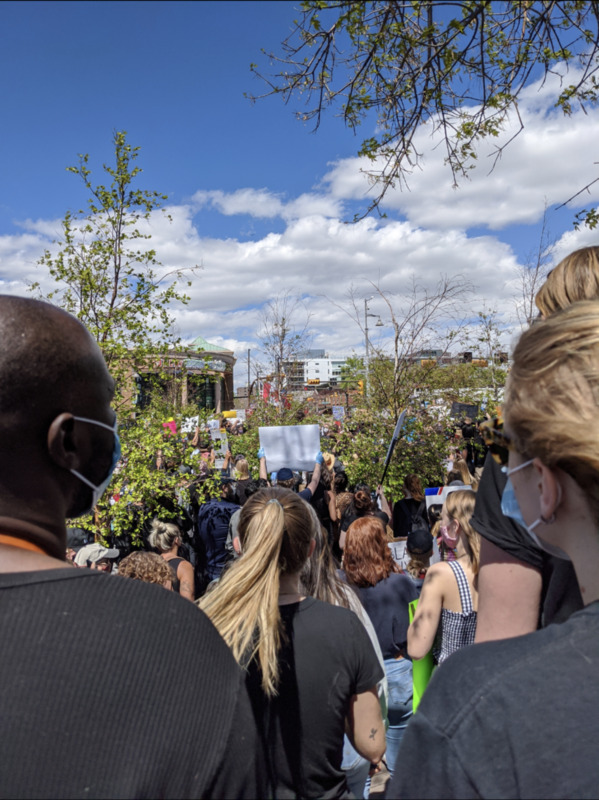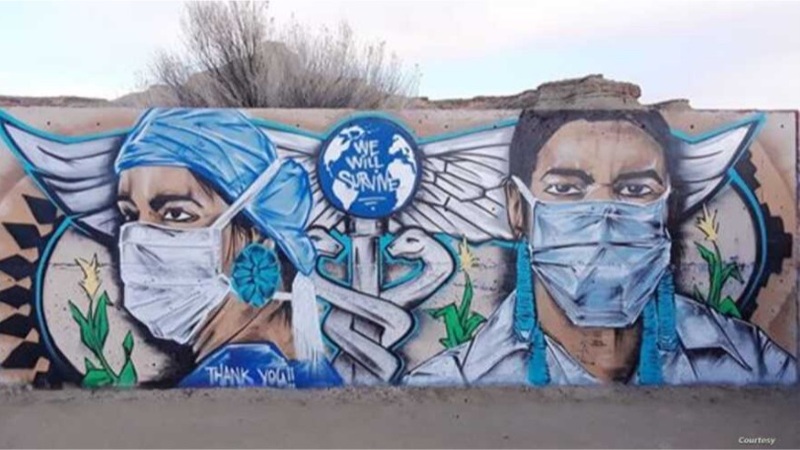Voices for Social Justice in North America
Social justice is ugly. It is messy. It is necessary. Necessary to reexamine the systems that define race, color, and privilege. Necessary to examine our beliefs and biases. Necessary to correct injustices and dismantle foundations of systemic oppression.
Black, Indigenous, LGBTQ, Asian American and Pacific Islander groups are targets of ever-widening economic and racial divides. Further, violence against these groups is growing. The pandemic is intensifying xenophobia and racist rhetoric, which is fueling hate crimes across the continent.
This exhibit gives a platform to those discriminated against, historically marginalized or silenced. We choose to amplify their voices through the themes of Racism, Sovereignty, and Discrimination. These are their voices.
The COVID-19 pandemic has not stopped millions of people in North America from taking to the streets and organizing collectively against oppression and racism. Advocates, protestors, leaders and supporters from all backgrounds and walks of life are fighting many fronts to establish lasting social change, despite the dangers. This work is necessary and important. Here are just a few of their voices...
"People question my patriotism, that I don't look American enough. They could not get over this, face. I want to show you something. I want to tell you, because I'm not afraid. I don't have to live in fear, intimidation, or insults. I'm 69 years old, and I'm gonna show you what patriotism, the questions about patriotism looks like. Here is my proof. This is sustained through my service in the U.S. military. Now, is this patriot enough?" - Lee Wong
Click
here to watch Mr. Wong's speach.
“Unfortunately, our pursuit didn't just start during the pandemic and hasn't been going on for a few months, or even a year. This is a pursuit that has been going on all of our lives, the lives of our ancestors, and almost assuredly for the generations that will come after us! My hope is that when people look back and search Covid-19 and the pandemic of 2020, they will also look at the totality of the struggles of Black Americans”. - Brandon
Click here to learn about Brandon's experience.
“As a mother, it made me proud to see my daughter standing up for her fellow man, and my husband standing behind her to keep her safe. As an American, I was devastated at the idea that we have not grown from racism and are still against people who will stand up to it.” -Jeanette Ridenour
Click
here to read more about Mrs. Ridenour's experience.
It's been an eye-opening experience to be right in the middle of the pandemic and a social climate like the one that we're in right now, and it's brought a whole new meaning to No Justice, No Peace. That unrest, I feel it in here in my spirit, I feel that unrest, and I don't think it will ever go away or be like it was before I woke up and became aware that so many bad things are happening to my people, black and brown people, people of color, or whatever label you wanna put on it.
- Oral History With Trisha Vaughn
Click here to hear the full oral history with Trisha Vaughn
Discrimination is sadly a part of the lived experience of many; human lives are shaped and redefined by prejudices based entirely upon their identity. These prejudices target people’s race, religion, gender, sexuality and much more; ultimately, these prejudices seek to strip people of their humanity. The pandemic has brought those who have suffered from these prejudices to the forefront of the public eye. However, the pandemic was not primarily responsible for these experiences becoming etched into our social consciousness; rather, it was those affected by prejudice themselves, rising in resistance. Those who organized, marched, shouted, fought against injustice during a global pandemic are responsible for the war against discrimination becoming intrinsic to the pandemic experience. These are their voices.
“I came here today as a parent, to share my story. I need you to understand that this language, if it becomes law, will affect my daughter. It will mean she cannot play on the girls’ volleyball team, or dance squad, or tennis team. I ask you, please don’t take that away from my daughter, or the countless others like her who are out there” – Brandon Boulware
Click here to see the full item
"I think part of the reason I am in nursing, and why I give it my all with every shift, is because I sense that I do not know how long I can keep being a nurse. Many of my colleagues can plan their careers, their lives for 10, 20 years at a time. But as a DACA recipient, I can only count on the next two years, until the next renewal. Right now, with the program up in the air, I live in fear and a bit of sadness." - DACA On The COVID-19 Ward: Yesenia's Story
Click here to hear Yesenia read a portion of her story
“Little did anyone know that his body was likely buried in the isolated land where the city buries the unhoused, the sick, the unclaimed, and the poor: Hart Island. After his body was taken away, his room was in quarantine for 3 days to get ready for a police investigation before his distant cousin and Maria were allowed to pick up his belongings. Reflecting upon his passing makes me wonder if at any moment he needed medical assistance but stayed silent because of his status as an undocumented immigrant.” – Anonymous, By Any Means
Stolen lands, broken treaties, and centuries of continual virus exposure. This is what we learn from history books, yet we rarely hear history from the Indigenous perspective. Their voices, so often silenced within the archives, now come to the forefront in this collection. Designed to feature COVID-19 experiences told from the Indigenous Point of View, these stories are curated from Indigenous news and social media platforms. They speak of resilience and hope but also stolen sovereignty and marginalization. Let them be told from their Point of View. These are their voices.
"We have our right to fish!!!"
"Doesn’t matter if you’ve been here for six, seven generations or you’re the first generation, by default being on Treaty 7 land, you are a treaty person. Yes we have long ways to go when fighting for water, I carried that fire a while ago, it stil burns in my heart and it’s my desire. The time passes, we hold to the principles that are us. Things that we hold sacred, like families, the future, what our past was, we still hold those sacred even though you may not agree with what happened. But there are still sacred events, the water has been here since where- and it’ll be here long after we are gone." - No Coal Mines on Niitsitapi Land (Indigenous Speaker unknown)
“Explain how it’s not genocide,” Johnson said to me. “Someone explain to me how it’s not.”
Exhibit Creators
The Voices for Social Justice in North America exhibit is created by three graduate students interning with the Journal of the Plague Year digital archive. They all attend Arizona State University but live across North America in Canada, Arizona, and California. Although the three are from different backgrounds, they quickly realized they share a common interest; amplifying voices to those suffering from social injustice. Padraic, Dana, and Robin would like to thank their extremely patient families for tolerating the many hours of late night Zoom calls, outbursts of emotion (laughter, frustration, hangriness) and the negotation and debate it took to create this exhibit. We hope we did justice to those featured in it.
Dana Bell - Dana lives in Northern California and is majoring in North American History. She is a secondary history teacher and enjoys renovating her 1972 VW Beetle with her family. She will be graduating in Spring of 2022. Black Lives Matter.
Padraic Cohen - Padraic lives in Alberta, Canada and is majoring in North American History. Padraic really hopes you enjoyed this exhibit, and to not hesitate sharing your own experiences in the archive. He will graduate in Spring 2022
Robin Keagle - Robin lives in Arizona and is majoring in North American History. Her goldendoodle, Obi, refused to participate or entertain the co-creators and instead, slept during most of the Zoom calls. She will graduate in December of 2021.

